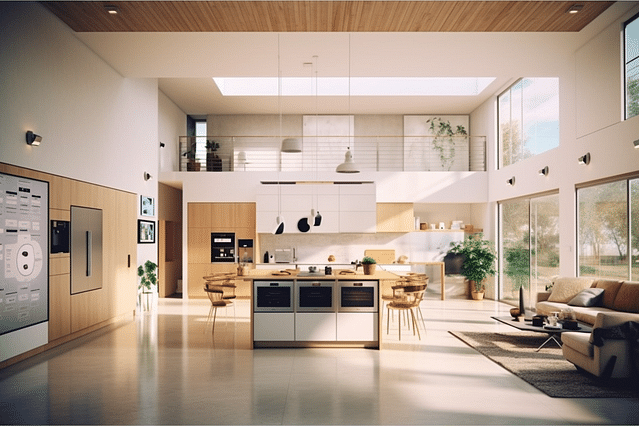
Home Automation and Security: A Comprehensive Guide
As technology advances, more and more homeowners are turning to home automation to simplify their lives and enhance home security. With a wide range of devices and systems available, there's never been a better time to invest in home automation and security. In this post, we'll explore the benefits of home automation and security, showcase the available devices, and help you choose the best system for your home.
What Is Home Automation and Security?
Home automation is the automatic control of electronic devices, such as heating, ventilation, air conditioning, lighting, security, and home appliances. Home automation devices work together to create a smart home. A smart home is a home where you can control the electronic devices remotely using a smartphone, tablet, or voice-activated device, like Amazon Echo or Google Home.
Home security systems, on the other hand, are designed to protect your home against burglaries, fires, natural disasters, and other threats. Home security systems are typically composed of various sensors, cameras, and alarms that work together to detect suspicious activity and alert you through your smartphone or computer.
Benefits of Home Automation and Security
There are many benefits to investing in home automation and security systems. Here are some of the most important:
Convenience
With home automation, you can control all your devices from a single app or device. For example, you can turn on the heating from your smartphone while you're still at work, or you can turn off the lights from your bedroom without having to get up.
Energy Efficiency
Home automation can help you save on your energy bills by automatically turning off lights, appliances, and heating systems when they're no longer needed.
Enhanced Security
Home security systems can deter burglars, monitor your home while you're away, and alert you to any suspicious activity.
Peace of Mind
Home automation and security systems can give you peace of mind by keeping your home safe and secure even when you're not there.
Available Home Automation and Security Devices
There are many different home automation and security devices available on the market today. Here are just a few examples:
Smart Thermostats
Smart thermostats, like Nest and Ecobee, can learn your habits and adjust the heating and cooling of your home accordingly. They can also be controlled remotely from your smartphone or tablet.
Smart Lighting
Smart lighting systems, like Philips Hue and LIFX, allow you to control the brightness and color of your lights from your smartphone, tablet, or voice-activated device.
Smart Locks
Smart locks, like August and Yale, allow you to lock and unlock your doors remotely using your smartphone. You can also assign temporary codes to your guests and monitor who's coming and going.
Security Cameras
Security cameras, like Ring and Nest, allow you to monitor your home remotely, view live footage, and receive alerts when suspicious activity is detected.
Choosing the Best Home Automation and Security System
When choosing a home automation and security system, there are several factors to consider:
Compatibility
Make sure the devices and systems you choose are compatible with each other and can be controlled from a single device or app.
Cost
Consider the initial cost of the devices and the ongoing costs associated with maintenance and monitoring.
Ease of Use
Choose devices and systems that are easy to set up, use, and maintain.
Privacy and Security
Make sure the devices and systems you choose are secure and respect your privacy.
Conclusion
In conclusion, home automation and security systems can enhance your life in many ways. They can make your home more convenient, energy-efficient, and secure. With so many devices and systems available, it's important to choose the best one for your needs. By considering factors such as compatibility, cost, ease of use, and privacy and security, you can find the perfect home automation and security system for your home.
Posted on: Jan 14, 2022 Last updated at: May 4, 2023